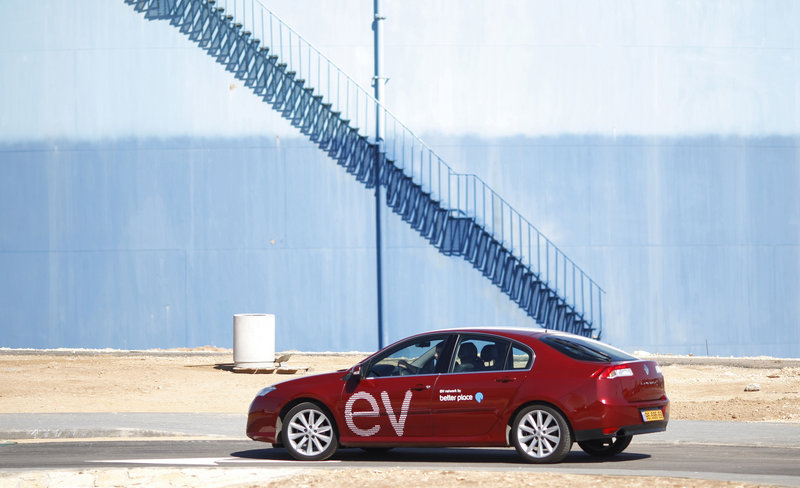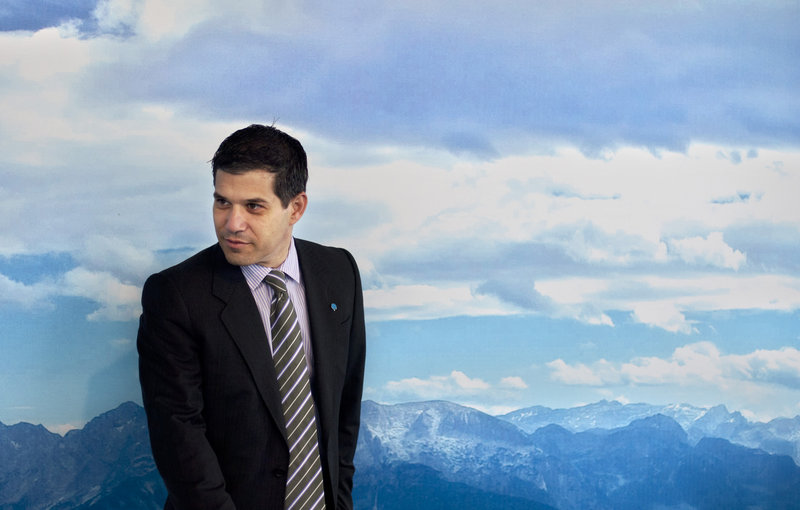– The Associated Press
ROSH HAAYIN, Israel – Israeli entrepreneur Shai Agassi has begun rolling out the world’s first nationwide electric car network. Now, will the drivers come?
After more than $400 million in outlays and months behind schedule, dozens of electric cars have hit the road in Israel, the test site Agassi chose for his Better Place venture. Four stations where the cars can get a new dose of juice when their batteries run out are operating, and the plan is to ramp that number up within months.
The concept: to wean the world from oil and eliminate the high cost and limited range that are the biggest hurdles to environmentally friendly electric cars.
To do this, Better Place has jettisoned the fixed battery. Instead, drivers can swap their depleted batteries for fully charged ones at a network of stations, receiving a full, 100-mile range in five minutes. Better Place owns the batteries, bringing down the purchase price of the cars using the network.
People driving shorter distances can plug in their batteries each day to chargers installed at their homes, offices and public locations. The batteries will fully recharge in six to eight hours.
He faces a wall of skepticism. A major concern is “range anxiety”: Will the car conk out because its battery is drained, stranding the driver?
Rising fuel prices worldwide still haven’t sent electric car sales surging, noted U.S.-based automotive expert John McElroy. “Consumers may simply decide that electric cars don’t offer the range they need,” he said.
Agassi, a former top executive at software giant SAP AG, said he is ready to prove his doubters wrong. “We’re driving a car that most people said would be a fantasy,” he said.
The swappable battery model aims to reassure drivers about range and show they don’t need to sacrifice convenience or cash to switch to electric.
So far, the four Better Place battery stations are set up in central and northern Israel. In the second half of the year, about 40 stations are due to be operating across the country. But even before that, the company says enough will be up that a motorist could make the 300-mile drive from Israel’s northern tip to its southern end.
Agassi has raised $750 million from investors including General Electric Co. and HSBC Holdings PLC since founding Better Place 4½ years ago.
French automaker Renault has begun selling a sedan, the Fluence, customized to use the stations, priced in Israel at roughly $32,000, comparable to other sedans sold here. Currently, about 140 are on the road, most driven by Better Place employees.
The Fluence should become available to the general public within weeks. Leasing companies, which buy about two-thirds of the more than 200,000 new cars sold annually in Israel, have ordered more than 1,800, and private customers have ordered several hundred more.
Compared to electric or hybrid cars in other markets, the sales numbers in this nation of nearly 8 million might not be as humble as they seem: In 2011, Chevrolet sold about 7,700 Volts and Nissan sold under 10,000 LEAFs in the U.S., which has a population of more than 310 million.
Better Place claims it can shave up to 20 percent off the annual cost of owning a car, especially if gas prices, now about $8 a gallon here, continue to rise.
Send questions/comments to the editors.




Success. Please wait for the page to reload. If the page does not reload within 5 seconds, please refresh the page.
Enter your email and password to access comments.
Hi, to comment on stories you must . This profile is in addition to your subscription and website login.
Already have a commenting profile? .
Invalid username/password.
Please check your email to confirm and complete your registration.
Only subscribers are eligible to post comments. Please subscribe or login first for digital access. Here’s why.
Use the form below to reset your password. When you've submitted your account email, we will send an email with a reset code.